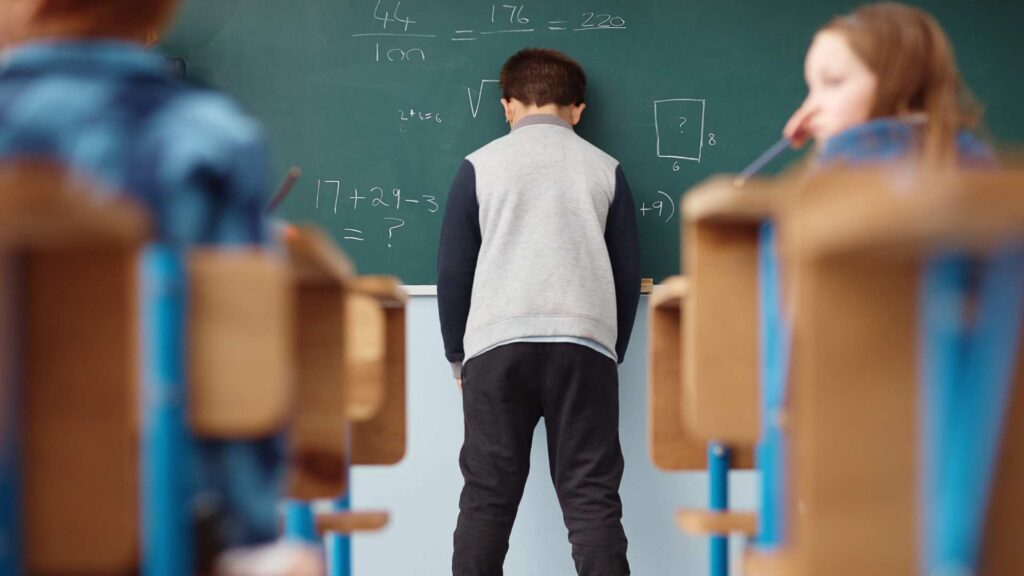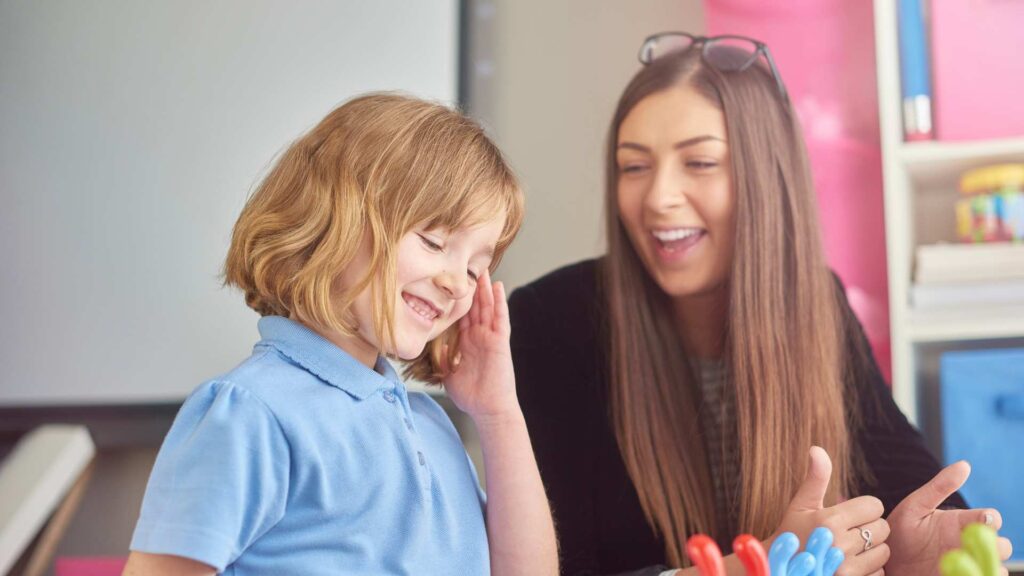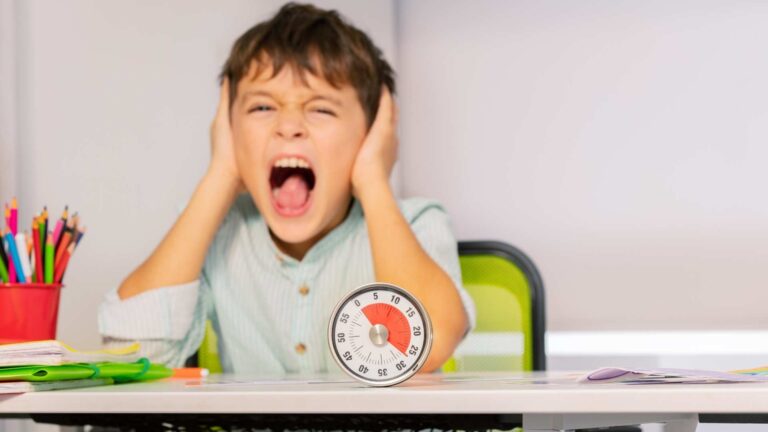Table of Contents
Why do changes impact individuals with autism?
As summer draws to a close, many parents and children start preparing for the new school year. For families of children with Autism Spectrum Disorder (ASD), this time can be particularly stressful. The transition from the relaxed and flexible schedule of summer to the structured and predictable routine of school can be challenging and make the back-to-school transition challenging. While many children enjoy the change and look forward to the new school year, children with autism often experience significant anxiety and stress.
Why do changes impact individuals with autism? Children with autism thrive on routine and predictability. The unstructured nature of summer can be both a relief and a source of anxiety. While they may enjoy a break from school, the lack of routine can be unsettling. As the new school year approaches, the thought of returning to a highly structured environment can be overwhelming. The unfamiliarity of new teachers, classmates, and academic expectations can also contribute to increased anxiety.
As we know, you are already preparing for your neurodivergent child’s return to school. At ABA Centers of Connecticut, we want to give you some guidelines to make the transition from vacation to back-to-school comfortable and friendly.
Anxiety in School Environment for Individuals with ASD

A study by Education Science indicates that individuals with autism experience higher rates of anxiety compared to the general population; the research shows that up to 40% of autistic youth have at least one anxiety disorder, such as specific phobias, OCD, or social anxiety, compared to 15% of non-autistic youth. This anxiety often increases with age, particularly social anxiety, and is more prevalent in those with higher IQs. In school settings, various factors contribute to anxiety, including bullying, sensory sensitivities, and the unpredictable environment of secondary schools.
Schools attempt to mitigate these challenges by offering support strategies like quiet spaces and key workers, but anxiety levels remain high. Students with autism also employ coping mechanisms such as social masking, especially among females, who may try to hide their autism symptoms to fit in, often leading to delayed diagnoses and increased stress.
The Unique Challenges Faced by Children with Autism
Children with autism face several unique challenges that can make the back-to-school transition particularly difficult. These challenges include:
Sensory Sensitivities: The school environment can be overwhelming for children with autism due to sensory sensitivities. Loud noises, bright lights, crowded hallways, and unfamiliar smells can all contribute to sensory overload, increasing anxiety and stress.
Social Interactions: Social interactions can be a significant source of stress for children with autism. Difficulty understanding social cues, making friends, and navigating social situations can lead to feelings of isolation and anxiety.
Changes in Routine: Children with autism often rely on routine and predictability to feel secure. The transition from the unstructured summer schedule to the structured school routine can be challenging and anxiety-provoking.
Academic Expectations: The pressure to perform academically and meet the expectations of teachers and parents can be a significant source of stress. Children with autism may also experience anxiety related to new academic tasks and unfamiliar subjects.
Communication Challenges: Difficulty with communication can exacerbate anxiety in school settings. Children with autism may struggle to express their needs, ask for help, or understand instructions, leading to increased frustration and stress.
Strategies for Easing Back-to-School Transition
To support their children, parents must develop strategies that cater to their specific needs, ensuring a smoother transition back to school. Creating a structured plan can help alleviate anxiety, foster a sense of security, and set the stage for a successful school year. By anticipating potential challenges and preparing in advance, parents can help their children adapt to the new routine and thrive in their educational environment.

At ABA Centers of Connecticut, we offer the following strategies to help parents and caregivers support their children with autism during the back-to-school transition:
1. Gradual Routine Adjustment
Begin adjusting your child’s daily routine several weeks before school starts. Gradually shift bedtimes and wake-up times to align with the school schedule. This gradual adjustment can help your child acclimate to the upcoming changes, making the transition smoother.
2. Visual Schedules
Visual schedules provide a clear and consistent outline of daily activities. Use pictures, symbols, or written words to depict the school day schedule, including class times, breaks, and extracurricular activities. Visual aids can reduce anxiety by providing a predictable structure and helping your child understand what to expect each day.
3. Pre-Visit to the School
Schedule visits to the school before the academic year begins. Allow your child to explore the classrooms, meet teachers, and locate essential areas like restrooms and the cafeteria. Familiarizing your child with the school environment can help reduce fear and build confidence.
4. Role-Playing Social Scenarios
Social interactions can be stressful for children with autism. Role-playing various social scenarios, such as making new friends, asking for help, and participating in group activities, can equip your child with the skills needed to navigate social situations more comfortably.
5. Customized Social Stories
Create social stories that describe specific school scenarios and appropriate responses. Tailor these stories to address aspects of the school day, such as lunch routines, playground behavior, and classroom etiquette. Social stories can help children understand and prepare for social interactions.
6. Sensory Management Tools
Prepare a sensory toolkit with items like noise-canceling headphones, fidget toys, or stress balls. Collaborate with teachers to integrate these tools into the classroom, helping your child manage sensory sensitivities and reduce anxiety. Sensory tools can provide comfort and a sense of control in an overwhelming environment.
7. Open Communication with Educators
Establish a strong communication channel with your child’s teachers. Share insights about your child’s strengths, challenges, and practical strategies. Collaborative efforts between parents and teachers can create a supportive environment for your child, ensuring that their needs are understood and addressed.
Professional Support With ABA Therapy

Applied Behavior Analysis (ABA) therapy is highly effective in supporting children with autism through transitions. By focusing on individual needs and reinforcing positive behaviors, ABA therapy helps children build the skills necessary for a successful school experience.
- ABA therapists work on creating and reinforcing daily routines that mirror the school environment, providing a sense of security and predictability for your child.
- Social skills training is a critical component of ABA therapy. Children learn to interact with peers, understand social cues, and develop friendships, reducing anxiety related to social interactions.
- ABA therapy addresses challenging behaviors by teaching coping strategies for anxiety, frustration, and other emotions that may arise in school settings.
- ABA therapy often includes training for parents, ensuring consistency, and reinforcing positive behaviors at home. This comprehensive support system helps parents more effectively prepare their children for the school year.
ABA Centers of Connecticut: Your Partner in Navigating Autism
At ABA Centers of Connecticut, we are dedicated to supporting families and children with autism. Our team of professionals provides personalized care and strategies to help your child thrive in various settings, including school.
If you need assistance preparing your child for the upcoming school year or navigating the challenges of autism, contact us at (844) 395-0448 or visit our website. We offer personalized ABA sessions that will not only help your child develop essential life skills, but you will regain your confidence and learn many more ways and pedagogies to navigate autism.
Together, we can make the transition back to school a positive and successful experience for your child.









